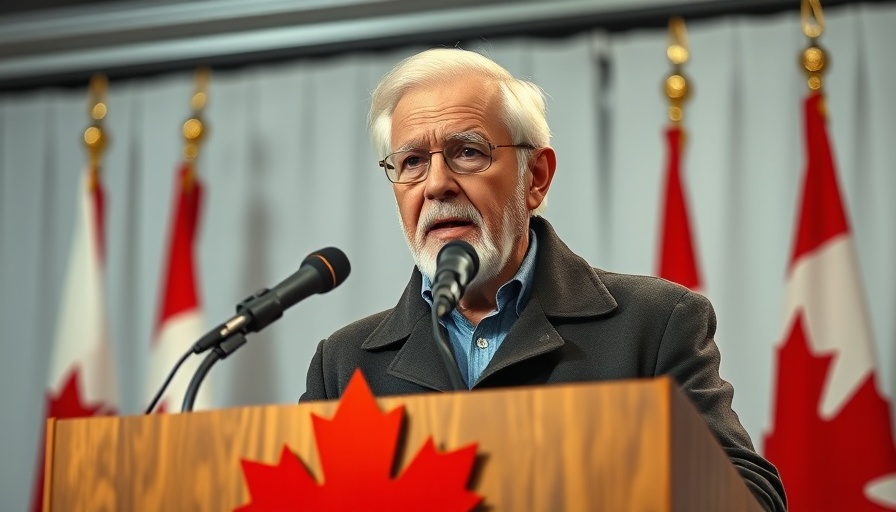
Shifting Dynamics: Mark Carney's Bold Statement
In a recent statement, former Bank of Canada Governor Mark Carney suggested that the traditional Canada-US relationship is no longer viable in today’s complex geopolitical climate. His assertion highlights a significant change in not only diplomatic relations but also economic structures that have historically bound the two neighbors together.
The Evolution of US-Canada Relations
Historically, Canada and the United States have shared a unique bond, characterized by close economic ties and shared values. However, as Carney posits, this relationship faces modern challenges that are reshaping the political and economic landscape. Trade disputes, such as the recent tariffs imposed by the US on Canadian goods, demonstrate that the old order is under strain. These economic pressures have forced both nations to reconsider their approaches to international partnerships.
Implications for Canadian Businesses
For Canadian businesses, this shift presents both challenges and opportunities. Navigating the evolving landscape may require a pivot in strategy, as companies seek to adapt to new trade policies and the potential for isolationism on the part of the US. Firms in the Bay Area, particularly Silicon Valley startups looking to globalize, now face an unpredictable environment.
Parallel Examples of Changing Alliances
To better understand Carney's perspective, we can look at parallels in other regions. In Europe, economic ties have adjusted in face of Brexit, altering long-standing alliances and trade agreements. Similarly, Canada might need to diversify its economic relationships beyond its southern neighbor, exploring partnerships with countries in the Asia-Pacific region or enhancing ties within multilateral organizations.
Future Predictions and Economic Insights
Looking ahead, experts suggest that businesses must develop contingency plans. As trade negotiations continue to wobble, it’s essential for entrepreneurs to assess the risks associated with their supply chains and market access. Understanding the economic forecasts can guide companies in making informed decisions. For instance, investing in local production capabilities or regional partnerships could offer alternatives to dependence on US markets.
Corporate Responsibility in a New Landscape
With the shift in relations comes a growing demand for corporate social responsibility. Businesses are increasingly being recognized not just for their economic contributions but also for their commitments to sustainability and ethical practices. As Canada's corporate culture evolves, embracing these values can enhance reputational strength and customer loyalty, positioning firms favorably in competitive markets.
Conclusion: Adapting to Change
The statement from Mark Carney may resonate deeply with both policymakers and business leaders. Acknowledging the changing dynamics in international relations and economic partnerships is the first step toward strategic adaptations that can safeguard and enhance business continuity. Companies that proactively embrace innovation and sustainability will likely thrive even amidst geopolitical uncertainty.
An adaptable approach in the face of evolving international relations will not only protect Canadian interests but also open new avenues for growth and collaboration. The Bay Area, with its thriving startup ecosystem, stands ready to adapt and innovate in response to these changes, ensuring its position at the forefront of global business.
 Add Row
Add Row  Add
Add 



Write A Comment